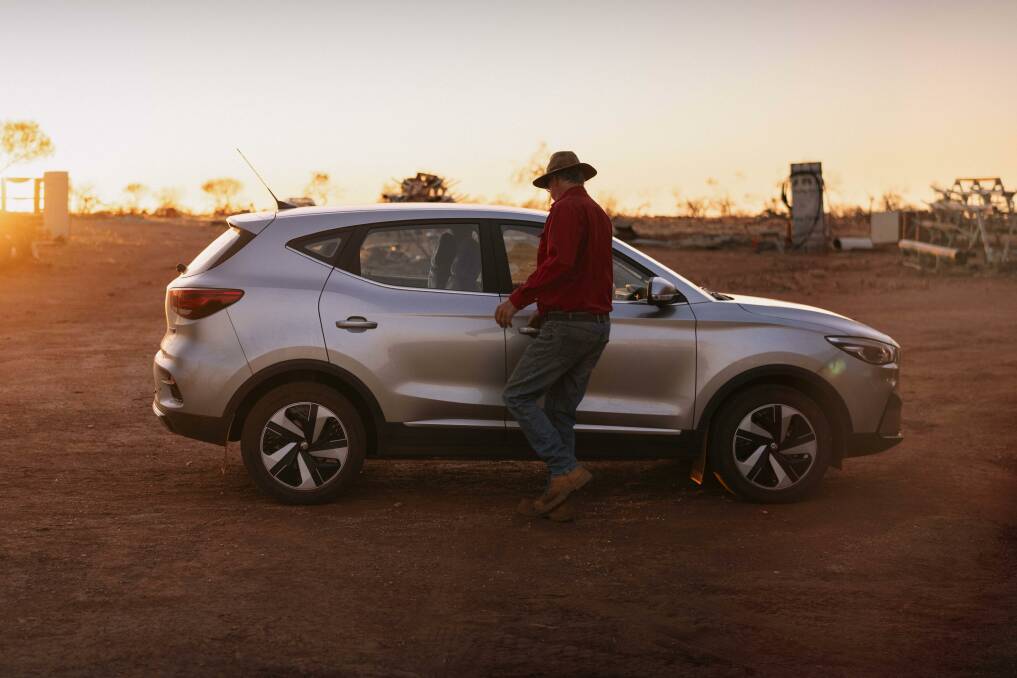Analysis however shows a huge 500-kilometre discrepancy between pure electric vehicle (EV) battery ranges, with some EVs having the capability to get drivers from Sydney to Melbourne with just one top-up charge and others not making it to the state border.
A recent comparison of 652 car models from 38 manufacturers to find the most affordable EVs with the longest range reveals that already available electric vehicles are well suited to Australian roads. The study found marked differences between battery ranges within all price brackets, ensuring multiple options for every budget.
Great range under $60,000
The analysis found that at just $48,000 (USD 31.363), the MG ZS EV, would get drivers from Melbourne to Sydney, a distance of 881 km, with just one top-up charge, based on its 505 km battery range.
The 2022 Tesla Model 3 Standard Range (E6LRB) has a range of 559 km per charge at a slightly higher price of $55,000. The 2023 Cupra Born also costs under $60,000 and has a battery range of 511 km per charge. At the much higher price of around $100,000, the 2020 Tesla Model S Long Range (SA3EB) has the longest battery range, of up to 720 km.
By comparison, the 2020 Mini Cooper Hardtop had the shortest battery range of 220km but was still priced at around $55,000. Another surprising result was that the most expensive pure EVs were not the most efficient.
Bigger price, less range
An EV in the highest price bracket – around $300,000-350,000 – would get drivers up to 625km per charge. This includes the 2022 BMW 7 Series and 2022 BMW G70. However, this battery range is still 95km less range than an EV at a third of the price, such as the 2020 Tesla Model S Long Range (SA3EB), at around $100,000 and with the highest battery range of all cars analysed, at 720 km per charge.
Up to 500km difference in battery ranges
In the lowest price bracket of under $50,000, we found a 200km difference in battery ranges. In the $50,000-100,000 price bracket, battery ranges for plug-in hybrid vehicles varied by 50 km, while pure
EV ranges varied dramatically from 220-700 km per charge. The difference in battery ranges in the next price bracket of $100,000-150,000 was similar with the lowest range coming in around 340 km and the highest at 700 km. The discrepancies narrowed to about 200km in EVs priced $150,000 onward. The discrepancy between plug-in hybrid models increased to 70km in the higher price brackets.
Petrol cars, which have annual running costs from $1500 to $3,400, have similar differences in their ranges, travelling anywhere from 457 km to 1,896 km on a single tank of fuel.
To ensure Australia meets its climate emissions target, half of new cars sold will need to be electric by 2030.
Record sales, low representation
Electric and hybrid vehicles saw record sales in February – 70.4% and 100.2% year-on-year, compared with just a 4.5% increase in petrol. But EVs still only made up 8.4% of all new car sales in 2023. A combined 95% of used cars bought and sold in Australia in February were still petrol or diesel.
There is likely persistent doubt, particularly among regional drivers, about the ability of EVs to meet the needs of Australian drivers.
Regional drivers typically travel longer distances to access basic services such as schools, shops and health care, while Australia’s sheer size means vast, isolated spaces between towns and cities where charging stations might be available.
While the uptake of electric and hybrid vehicles is improving, these myths and concerns around long-distance and regional travel continue to dissuade some Australian drivers from buying EVs.
Our analysis provides reassurance that motorists can access a diverse range of EVs that suit various budgets and offer the practicality of long-range travel on a single charge.
This is good news for drivers and EV advocates, demonstrating that switching to an EV does not have to be expensive or worrisome when it comes to traversing Australian roads.
Author: Sabina Khanusiak, Business Analyst, MNY
The views and opinions expressed in this article are the author’s own, and do not necessarily reflect those held by pv magazine.
This content is protected by copyright and may not be reused. If you want to cooperate with us and would like to reuse some of our content, please contact: editors@pv-magazine.com.








By submitting this form you agree to pv magazine using your data for the purposes of publishing your comment.
Your personal data will only be disclosed or otherwise transmitted to third parties for the purposes of spam filtering or if this is necessary for technical maintenance of the website. Any other transfer to third parties will not take place unless this is justified on the basis of applicable data protection regulations or if pv magazine is legally obliged to do so.
You may revoke this consent at any time with effect for the future, in which case your personal data will be deleted immediately. Otherwise, your data will be deleted if pv magazine has processed your request or the purpose of data storage is fulfilled.
Further information on data privacy can be found in our Data Protection Policy.